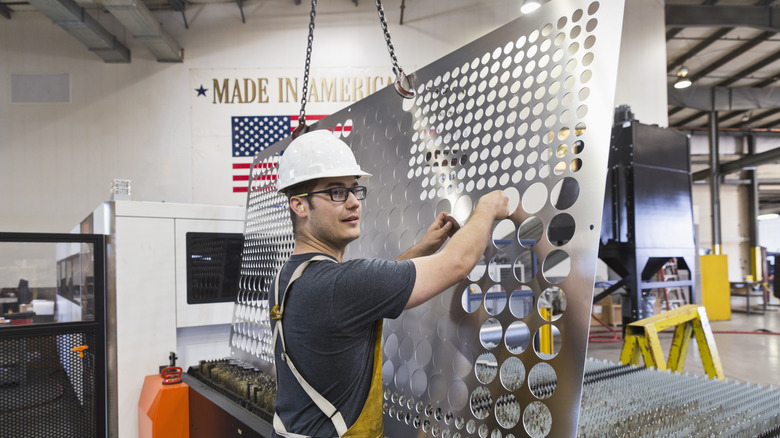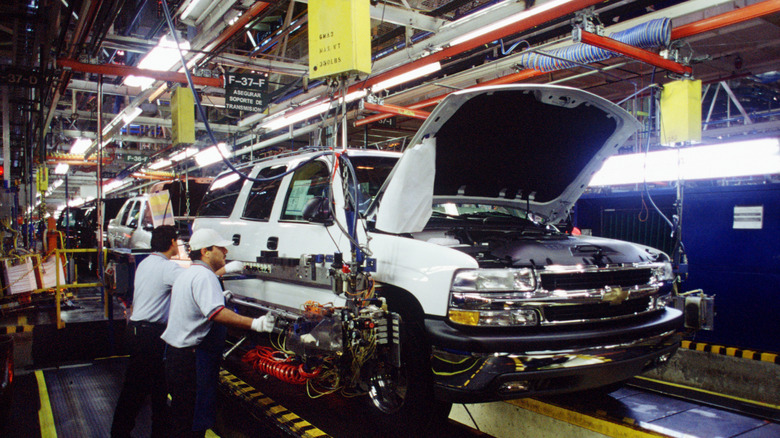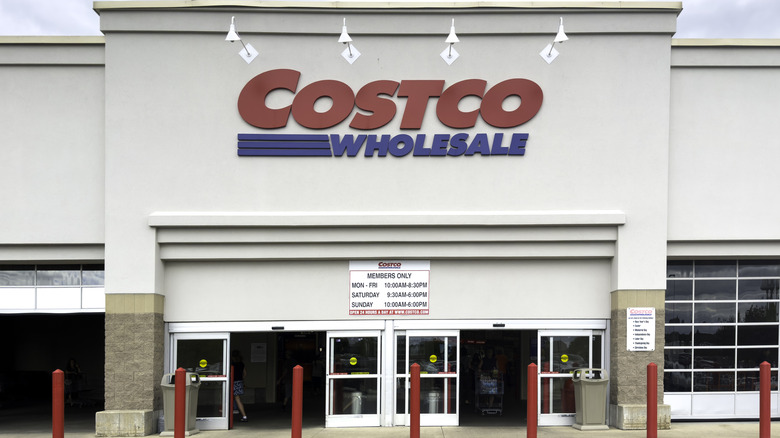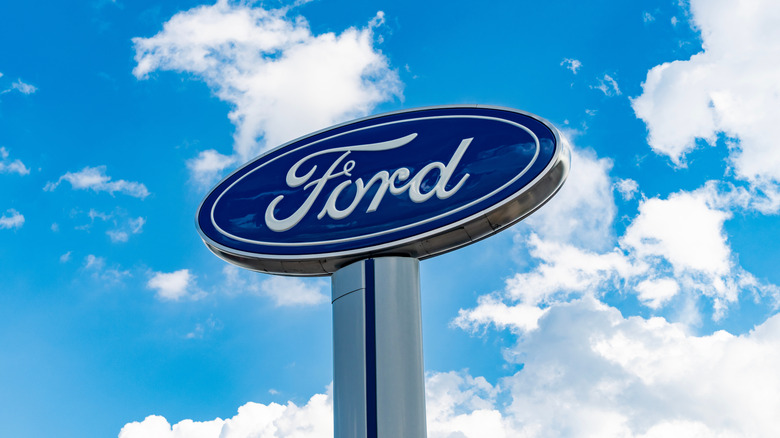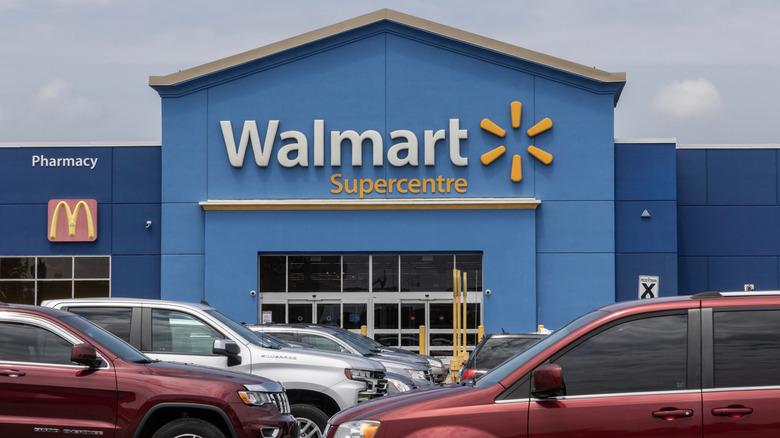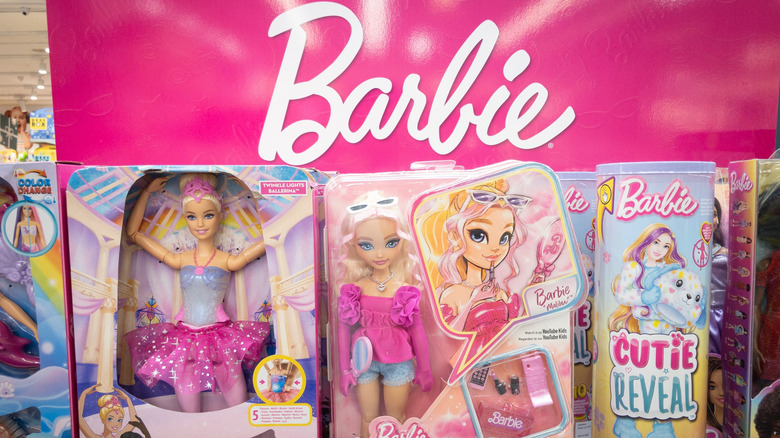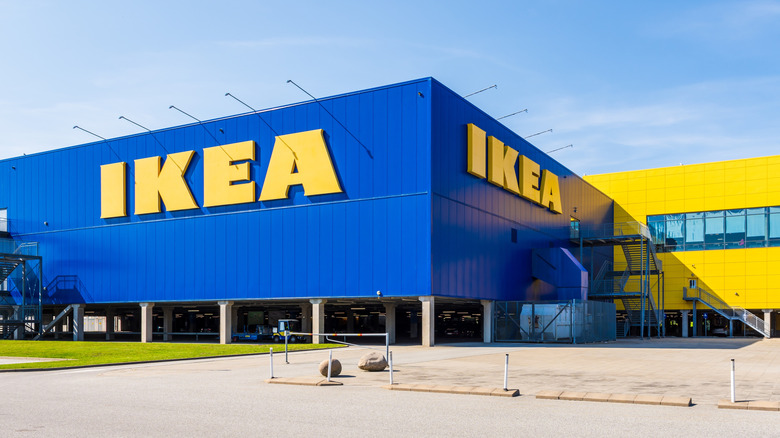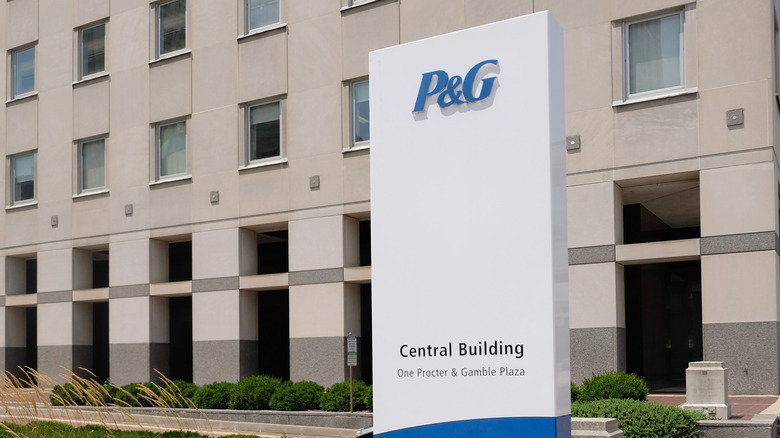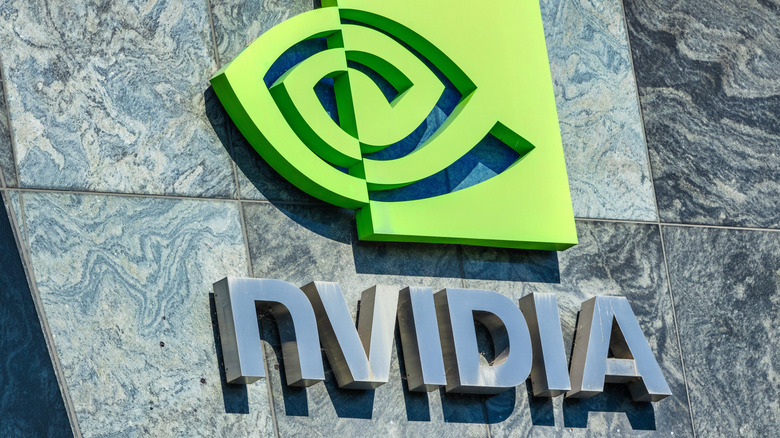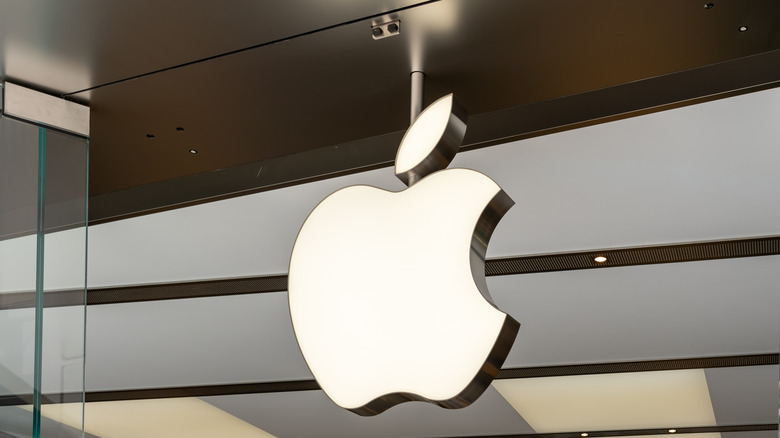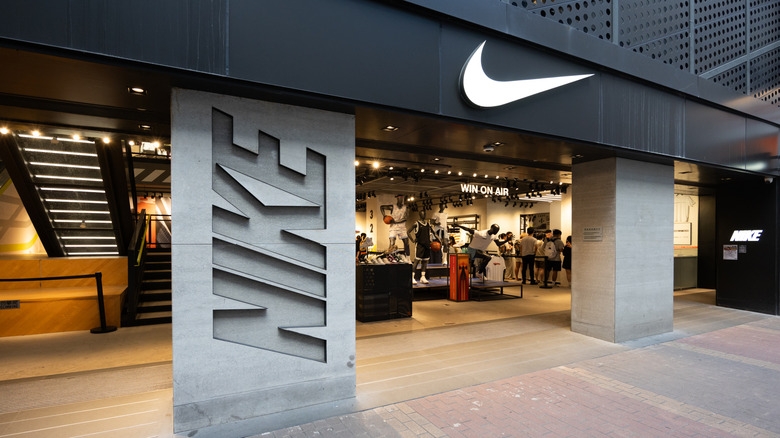Popular Companies That Are Worried About Tariffs In 2025
According to the National Retail Federation (NRF), the tariffs proposed by President Trump could have a $46 billion to $78 billion dollar negative impact on the U.S. economy. Tariffs on clothing, furniture, toys, and other items could cause the cost of these goods to skyrocket. The numbers are staggering. The NRF estimates Americans would have to annually spend $13.9 billion to $24 billion more for clothing, $8.8 billion to $14.2 billion more for toys, and $8.5 billion to $13.1 billion more for furniture, for example.
As explained by University of Rhode Island Professor of Economics Nina Eichacker, tariffs create challenges for U.S. companies that sell imported goods manufactured in Mexico and Canada, and they also hurt American consumers because the extra costs of importing products are typically passed on to them in the form of higher prices. Even worse, there's a high possibility those countries will respond in kind, initiating their own tariffs against U.S. exports. Of course, this adds an extra burden to American companies because not only are the products they sell in the U.S. more expensive — affecting the U.S. consumer's desire to spend money on their products — but there's even less desire on the part of foreign consumers to spend money on their products.
While the National Retail Federation has detailed a few industries where President Trump's proposed tariffs will have an interest, many businesses large and small are concerned about their impact. Here are a few.
General Motors (GM)
General Motors (GM), aside from being one of the biggest players in the automotive industry, also has manufacturing plants located in Mexico — in Ramos Arizpe, Silao, and San Luis Potosí specifically — which makes a tariff something of a problem. With its second-best-selling vehicle, the Silverado, and several electric vehicles (EVs) caught in the crosshairs of President Trump's plan to place tariffs on Mexico and Canada — a plant in Oshawa, Ontario is the Canadian connection — the company faces higher costs to import most of their vehicles being manufactured elsewhere. GM's North American supply chain under USMCA, formerly known as NAFTA, relies on cross-border movement of parts. Tariffs on materials like steel or aluminum would place a heavy toll on production costs. That would even affect U.S. made vehicles since a lot of those parts are sourced from Mexico or Canada.
The other side of the equation is what happens if Canada and Mexico retaliate with tariffs of their own, which would further hurt GM's sales abroad. Tariffs could make GM's imported models less competitive against domestically produced rivals too. A 25% tariff on Mexican-built vehicles for instance, passed on to the American consumer, might push consumers toward U.S. manufactured alternatives from competitors.
Costco
Costco CFO Gary Millerchip didn't waste much time when it came to expressing his concerns over Donald Trump's tariff plans. Chief amongst those worries were how Trump's policies would raise import costs for goods sourced internationally, which would cost Costco, known for bulk imports of products like electronics, apparel, and household items, higher expenses. This will potentially lead to big changes when you shop at Costco in 2025. For one thing, Costco relies on stable supply chains to maintain low prices and consistency of stock. Uncertainty around how high tariffs will affect that could throw a wrench in long-term planning, forcing Costco to consider costly measures like stockpiling inventory or pivoting to alternative suppliers. However, these measures require time and investment, adding complexity as well as ongoing uncertainty.
While Millerchip points to the silver lining in this cloud being that only a quarter of their business being potentially impacted by the tariffs — mostly non-food items — the fact of the matter is Costco is a business, and when given the choice of absorbing the costs or passing them on to consumers, the latter is mostly likely to be the case. The higher costs may just be one of a few reasons not to renew your Costco membership this year.
Ford
Ford finds itself in the same boat at GM, with many of its most sought after models like the Maverick, Bronco Sport, and Mustang Mach-E being manufactured and imported from plants in Cuautitlán Izcalli and Hermosillo, Mexico, or in China. While Ford also owns a plant in Canada, a $300,000 price tag on the Mustang GTDs being produced there makes it unlikely that anyone able to afford that would think twice before buying a new car. Still, 1.54 million light-duty vehicles were manufactured in Canada in 2024, and imported into the U.S. Between Mexico and Canada, Wells Fargo estimates potential losses caused by tariff hikes of 5%, 10%, or 25% to cost automobile manufacturers like Ford anywhere from $13 billion to $56 billion, which again, companies like Ford will either have to eat, pass on to the consumer, or balance some version of the two.
Basically, like GM, Ford is looking at higher costs for itself and consumers, inefficient and costly supply chains, big hits to its domestic and international sales, and an overall weaker position in a highly competitive global market. Michigan Gov. Gretchen Whitmer likened the impact of tariffs to a matter of national security since 70% of the auto parts made in the state go to Mexico and Canada, making China the only winner. Time will tell if that belief is hyperbole or fact.
Walmart
Walmart CFO John David Rainey explicitly warned of price hikes if President Trump's proposed tariffs were implemented, meaning that Walmart's same everyday low prices might not stay so low if tariffs have anything to do with it. As a major importer of goods, particularly from China, tariffs would directly raise Walmart's supply costs. These costs could force Walmart to either absorb the hit to profit margins — a challenge for a retailer with a 27% profit margin — or pass them on to consumers through higher prices. While these tariffs are presented as taxes on foreign companies, they are often paid by U.S. importers like Walmart, who then transfer the costs to consumers. For example, tariffs on Chinese goods like electronics, apparel, and household items would severely impact Walmart's supply chain, since, as per the American Alliance for Manufacturing (AAM), 70% to 80% of their products come from China. Interestingly enough, Walmart's CFO, much like Costco's CFO, also claims two-thirds of Walmart's products are made in the U.S., which contradicts the data compiled by AAM.
Ultimately, Walmart's reliance on cost-conscious shoppers makes it vulnerable to even the slightest price increases. If tariffs force Walmart to raise prices, customers might turn to competitors to reduce their spending. When you're a brand whose whole identity is built around your pricing that's, going to definitely have a negative impact.
Mattel
With 50% of Mattel's toys made in China in 2023, you can already see the challenge ahead for the company. While that number has shifted downward to about 20% this year, there's still lots of room to be felt in consumer's wallets since that additional cost will be covered or shared by them. According to the Toy Association, the toy industry, including Mattel, is advocating against these tariffs, arguing that toys are already low-margin products, and additional tariffs would disproportionately harm their industry. The Association also points to tariffs as a potential cause of reduced consumer demand, leading to a one two punch of increased inflationary pressure on families facing higher toy prices and job losses.
The impact of tariffs in real terms would raise the price of a $20 Barbie doll to $31, with the unfortunate side effect of that not only having a negative impact on the industry, but also, safety, since parents under financial pressure may turn toward cheaper alternatives with lower safety standards. According to the U.S. Consumer Product Safety Commission (CPSC) via UNCAS Health District, there were 154,700 toy-related injuries in 2023 for children 12 years old and younger. So obviously, the cost of tariffs for Mattel and the toy industry in general aren't just economic, but also, close to home.
Constellation Brands: Modelo, Corona, and Pacifico
Constellation Brands is a major importer of beer, wine, and alcohol into the U.S., with beer brands Corona, Modelo, and Pacifico in its portfolio. With a market valuation over $43 billion, it's a behemoth that also stands to lose to tariffs. Constellation Brands' operations depend quite a bit on beer imported from Mexico, which makes it susceptible to anything hurting trade between the U.S. and Mexico. President Trump's proposed tariffs on Mexico and Canada would affect Constellation Brands' cost of importing product, potentially forcing the company to accept the hit to its bottom line, or to pass costs on to their customers. With costs going up 16%, at least 4.5% of that could get tacked onto your next six-pack purchase. When you consider how much the average American spends on alcohol every year, that economic cost could be huge.
In an attempt to mitigate the influence of high tariffs, Constellation Brands began stockpiling beer in 2024 to ride out the initial impacts — stockpiling products allows them to avoid having to immediately raise prices for consumers while also ensuring no shortage of supply. Still, there is a potential domino effect caused by tariffs that could also impact the American wheat farmer. Although the company's products are imported, 75% of the barley that goes into Constellation Brands' beer is grown in the U.S.
Ikea
Jesper Brodin, CEO of Ikea's parent company the Ingka Group, warned that tariffs could lead to higher prices for customers at the World Economic Forum. Ikea, much like Costco and Walmart, has been trying to run a low-cost, high-volume business by cutting prices over the last few years. Unfortunately, President Trump's tariffs will put a damper on that since the company relies heavily on affordable imported materials like wood and metal that often come from Mexico and Canada.
In a FurnitureToday survey of furniture industry insiders, 46% of respondents said that the tariffs proposed by President Trump would have a significant impact on the industry, with 87% pointing to higher prices for consumers caused by what 83% expect to be supply chain costs. Even worse, 71% said inflation only compounds the issues, with 68% predicting furniture production will move overseas and 56% expecting retaliatory tariffs on U.S. made furniture in response. If Ikea's response is any indication, more consumers will be looking for the best day to shop Ikea's 'as-is' aisle for a bargain if the company does pass on the cost of tariffs to customers.
Proctor & Gamble
Considering Proctor & Gamble has already raised prices in response to tariffs initiated during President Trump's first presidency, the company should already have some idea of what to expect. Like the last go-round, those tariffs targeted raw materials and imported goods that Proctor & Gamble relies on for manufacturing products like detergents, toilet paper, and personal care items. The new tariffs only compound existing inflationary pressures, forcing P&G to either take on higher costs and hurt profit margins, or implement more price hikes. That Proctor & Gamble invested $6 billion on U.S.-made inventory during Covid may help them weather the storm a little better than other companies on our list, however, if customers aren't interested in spending more on products that can be found more cheaply elsewhere, P&G could have a problem. In the third quarter of 2024, 10% of Proctor & Gamble's products were sourced from Mexico. At a time when you should be thinking about things you should stop buying to save more money, a major supplier of everyday household products like Proctor & Gamble raising prices is bad news for the company and the consumer.
Nvidia
Like Constellation Brands, tech giant Nvidia took the proactive approach of stockpiling next-generation GPUs before the January 20, 2025 inauguration. This would have led to a potential 40% price increase in vital components Nvidia needs since China is a major supplier of semiconductor parts. Apparently, China is taking full advantage of this as we speak by flooding the market with chips. Add to this the recent 6.9% drubbing the company took on the stock market this week after the launch of Chinese-made AI engine DeepSeek shook the industry.
With a large share of semiconductor parts manufactured in Taiwan, localizing manufacturing capability could create more problems like lower-quality technology in a market where high performance is the selling point. Between supply chain snafus, higher costs, lower performance, and regulatory restrictions, Nvidia may have their work cut out for them. It should come as no surprise there's an alternative to Nvidia stock billionaire investors appear keen on.
Dairy Farmers of America
Dairy Farmers of America is probably not who you would expect to end up on this list, however, according to the U.S. Department of Agriculture (USDA), global exports in 2023 totaled $8 billion across 10 countries. That's a huge market that could be reduced because of tariffs. That could lead to a massive surplus of items, which would drive dairy prices downward. While good for the consumer, it's not good for dairy farmers. It also shrinks the market for U.S. dairy products internationally, which is the equivalent of $6 billion worth of exported dairy products.
Immigration policy also comes into play here since 50% of dairy workers are migrants, and President Trump's policies favor deportation over H-2A visa program workers' stability. This would come at a premium to farmers, with domestic labor costing an average of $25 to $30 per hour versus migrant wages of $15 to $25 per hour.
Apple
According to AppleInsider, President Trump's new tariffs on Chinese imports directly threaten the company for the same reason it's an issue for Nvidia. China is a semiconductor manufacturing superpower, with a vast amount of components for devices like iPhones and Macs being sourced by U.S. technology companies like Apple. Tariffs would increase production costs, forcing Apple to either accept lower profits, or to raise prices for customers. While the article points to some hesitation on President Trump's part to place tariffs on China, how this will shake out is still very much up in the air.
That said, China's dominance over several industries including electric vehicle manufacturing, semiconductor components, solar panel production, and, as evidenced by the launch of DeepSeek, artificial intelligence, China looks more capable of riding out a trade war than the U.S. Does investing work the same in China? Not exactly. Still, it's safe to say that, between the U.S. and Chinese markets, a trade war will probably hurt American tech companies more than Chinese companies.
Nike
According to Sneakerfreaker, 50% of shoe manufacturing happens in Vietnam, 24% in Indonesia, and 22% in China. Tariffs on imports would raise manufacturing costs, creating added costs that could force Nike to pass those costs on to consumers. In 2019, when a similar occurrence happened during the last Trump presidency, Nike went as far as to write a letter to the government asking them to reverse course on placing tariffs on China. Answers like moving production to the U.S. sound, good, but of course, that requires work. That means hiring and training new employees, building out new manufacturing facilities, and strategizing new supply chains. This isn't something a company the size of Nike can do on the fly, nor can it do it cheaply.
That, again, becomes a cost to either take on themselves in the form of lower profit margins, or to take out on your wallet in the form of higher prices at your local Nike retailer. It gets even pricier for everybody if China were to retaliate. China is a big market, and Nike becoming less appealing as a product due to increased price wouldn't help their situation any.
